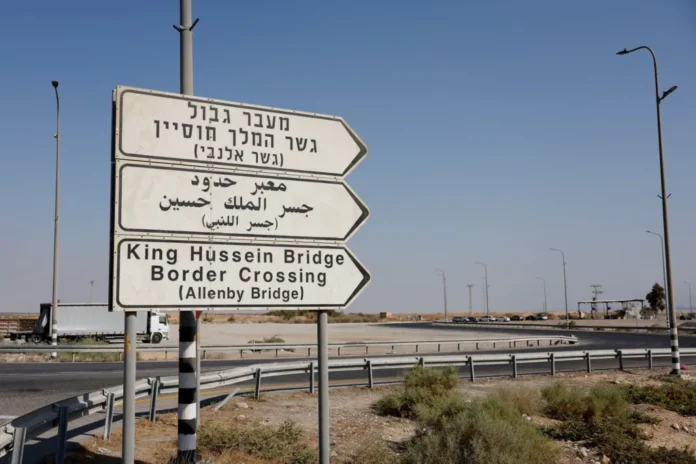Israel has indefinitely closed the Allenby Bridge crossing, the only passage between the Israeli-occupied West Bank and neighbouring Jordan, effectively trapping more than two million Palestinians within the territory and cutting them off from the outside world.
The Israeli airports authority, which oversees the crossing, announced that the closure took effect on Wednesday morning, following orders from the government. No official reason was given, though the move comes just days after a Jordanian gunman killed two Israeli soldiers near the crossing before being shot dead.
The crossing was briefly closed after the incident but had since reopened, making the indefinite closure a new escalation.
For Palestinians in the West Bank, the Allenby Bridge—also known as the King Hussein Bridge—serves as their only route abroad. Most are barred from travelling through Israeli airports or other border points.
The closure has already stranded thousands of Palestinians abroad who cannot return home, while many in the West Bank have been forced to cancel planned trips.
Prominent Palestinian politician Mustafa Barghouti called the closure a “dangerous move,” saying it amounts to “imprisoning” the population and severing vital family ties. “Thousands of people who are stuck in Jordan don’t have resources to stay outside,” he told the BBC.
“Mothers separated from children cannot come back, families are disrupted, and students’ futures are at risk.”
Among those affected is 23-year-old medical student Maxim Giacaman from Bethlehem, who had secured a rare opportunity for a cardiac surgery elective in Germany. “My plane is on Saturday,” he said, “but now it feels miserable because I was planning to go through Jordan today.”
The Allenby Bridge is not only a passenger crossing but also a crucial trade route for the West Bank, facilitating goods, medical supplies, and humanitarian aid. Israeli authorities acknowledge that about nine percent of aid destined for Gaza passes through the crossing. Its closure could worsen already dire humanitarian conditions.
Palestinians fear the indefinite shutdown is part of Israel’s response to recent moves by the UK, France, Australia, Canada, and others to recognise the State of Palestine. The Israeli government condemned these recognitions as a “reward for terrorism,” with ultranationalist ministers urging full annexation of the West Bank.
Since the Hamas-led attack on southern Israel in October 2023, which killed around 1,200 people and triggered the ongoing Gaza war, Israel has tightened control across the West Bank. Hundreds of new checkpoints have been installed, settler violence has surged, and military raids have intensified.
Critics argue the bridge closure marks another step in expanding Israel’s “oppressive policies.”
Barghouti warned that without strong international action, Israel would continue to escalate. “It shows the world community has failed drastically in deterring Israel,” he said.
Built in 1918 and named after British General Edmund Allenby, the bridge has been under Israeli control since the 1967 Six-Day War. Temporary closures have occurred during holidays or security threats, but the current indefinite shutdown risks sparking a prolonged humanitarian and political crisis.

